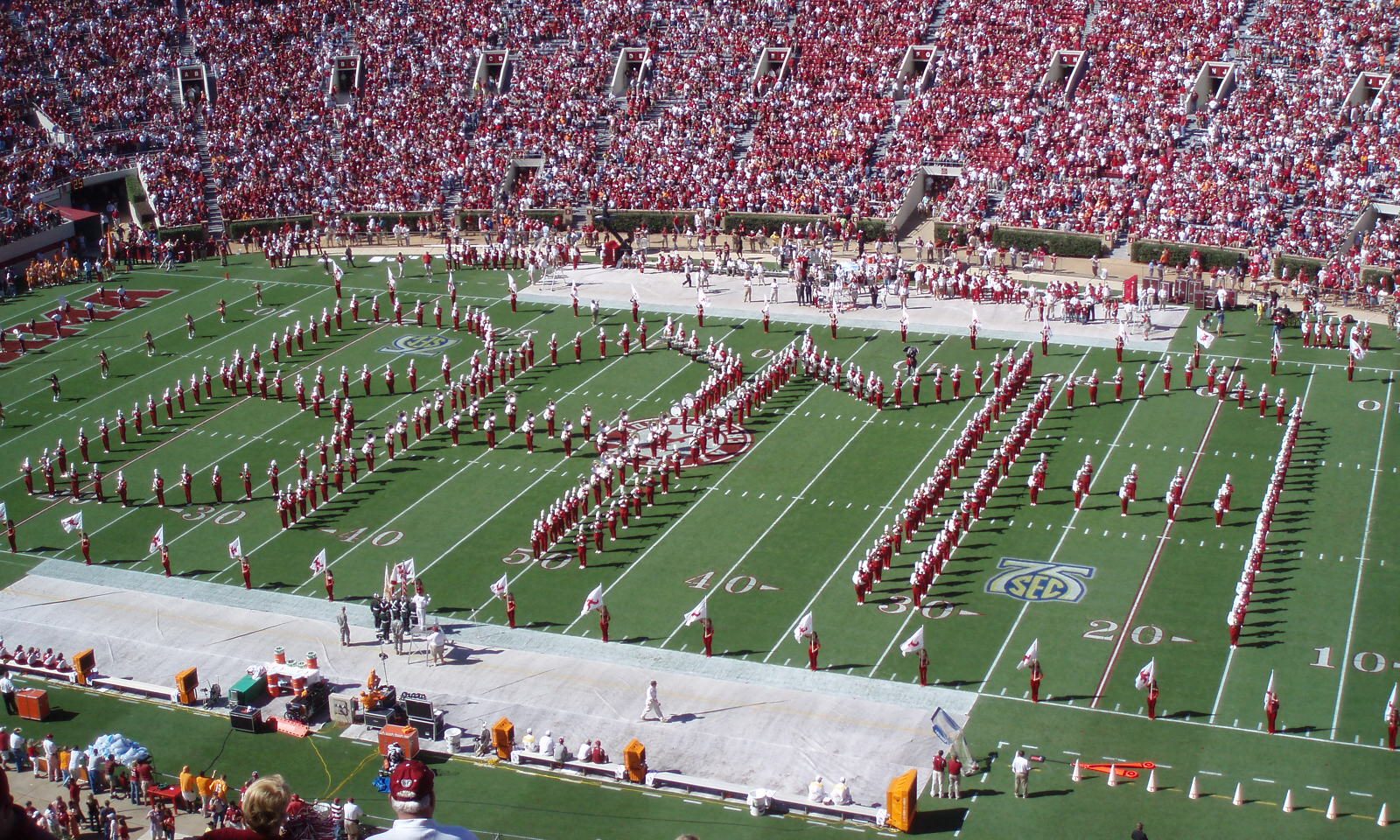The NCAA Board of Governors will be meeting Friday in an ad-hoc session to discuss the fate of NCAA-sponsored championships for fall Sports. Canceling the championships for fall sports is the only item on the agenda.
The NCAA really has no power over football bowls and the postseason of Division One Football Bowl Subdivision teams as the NCAA doesn’t own the bowls or the Division One Football Bowl Subdivision playoffs. The NCAA does, however, totally control the playoffs for the Division One Football Championship Subdivision, Division II football and Division III football. If the NCAA Board of Governors votes that it is unsafe to play any of their playoffs, it is likely to send a message that college football itself is unsafe to play this fall and puts pressure on Division One Football Bowl Subdivision teams to follow their lead.
Alabama, Auburn, Troy and UAB play in the Division One Football Bowl Subdivision.
The athletic directors at the Power Five conferences — the SEC, Big Ten, Pac 12, ACC, and Big Twelve — are asking the NCAA Board of Governors not to do this yet. They want more time to see if there is a way to play football and the other fall sports amid the surging coronavirus crisis. Shane Lyons, the athletic director at West Virginia, wrote a letter to the Board of Governors asking them not to cancel the playoffs this week.
“We acknowledge that the path forward will be challenging, and that the virus may ultimately dictate outcomes,” Lyons wrote in the letter. “We are simply requesting that the Board of Governors not make an immediate decision on the outcome of fall championships, so that conferences and schools may have ample latitude to continue to evaluate the viability of playing football this fall.”
The move would not end the seasons of the schools — that decision would still be left to the member institutions — but without a postseason, it would be difficult for schools to continue fielding fall teams.
This football season, like all fall sports, remains in crisis whether the NCAA acts on Friday or not. The Ivy League and the Southwest Athletics Conference, which includes Alabama State and Alabama A&M, have already made the decision to scrap all of their fall sports and play them in the spring instead.
When asked if the season can be played this fall, NCAA President Mark Emmert told ESPN’s Heather Dinich, “Today, sadly, the data point in the wrong direction. If there is to be college sports in the fall, we need to get a much better handle on the pandemic.”
“I get asked every day if college sports will return this fall. The consensus opinion among our health advisers is significant change must occur for that to happen,” Emmert told the Senate Judiciary Committee on Wednesday.
College football is very important in Alabama.
Montgomery Quarterback Club board member and former president, Perry Hooper Jr. said, “The board should do everything in its power to save NCAA fall sports, especially football. There is nothing more American than a crisp fall afternoon and College Football.”
“As a former high school football player, and father of three Division I football players and former Head Coach of the Montgomery Quarterback club and current board member, I have witnessed firsthand what the experience of playing football means to players at all levels,” Hooper said. “It would be especially tough for college seniors who would be denied their ‘icing on the cake’ season after playing football most of their academic life if this season is canceled.”
Not playing the 2020 college football season at all, or playing it with no fans in the stands, will come with a significant economic cost, particularly for Lee and Tuscaloosa counties, where 100,000 or more visitors descend on the college towns for eight weekends each fall.
“The economic impact of sports is profound. Hotels, restaurants, and retail generate vast amounts of tax revenue, which allow local economies to benefit from the tourism associated with sporting events,” said economic developer Nicole Jones. “College football is part of our culture. Many of us plan our Saturdays around when Alabama or Auburn play. While the Board of Governors does not have the authority to shut down the college football season per se, choosing to cancel NCAA Championships would make a season difficult, as it could theoretically lead conferences to cancel their games. The board has a challenging decision ahead. COVID-19 is deadly. We are in an unparalleled time in human history. My questions for the board are, can their team devise a plan for folks to safely socially distance while at the championships? Would season ticket holders be willing to forego some games, essentially share the stadium, so more people can attend in a socially distanced environment? No matter what the answer, the decision is costly.”
The Big Ten and PAC 12 have both already voted to play only conference games this year. That move has already cost the University of Alabama its opening day game against the University of Southern California.
If the Board of Governors does not act on Friday, they can look at the situation again at their next official meeting scheduled for Aug. 4.
Auburn University football players report to fall camp Aug. 2 and University of Alabama football players report Aug. 3. The player are currently doing “voluntary” workouts to improve their strength, speed and agility.
Alabama has become a recent hotspot for COVID-19. As of Wednesday, the state has had 70,413 diagnosed cases of coronavirus and 1,325 COVID-19 deaths — including 399 of them in July. 146,185 Americans have already died in the global pandemic.


















































